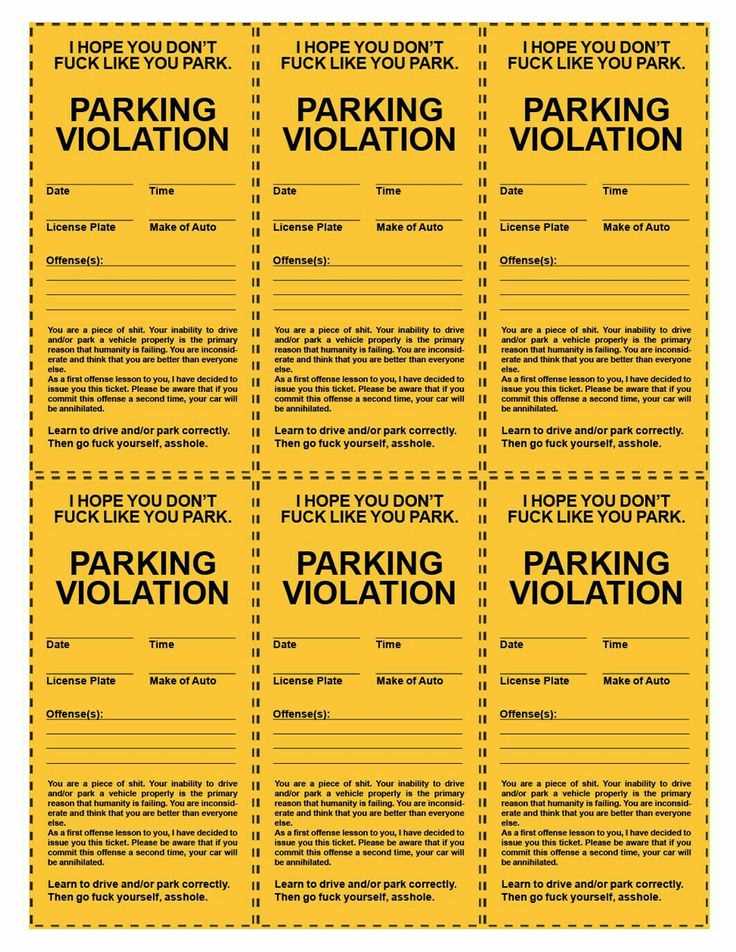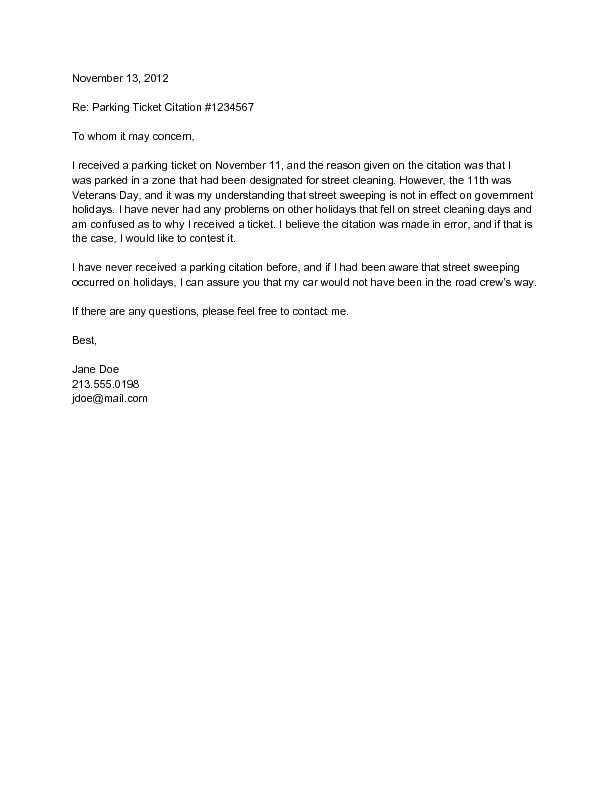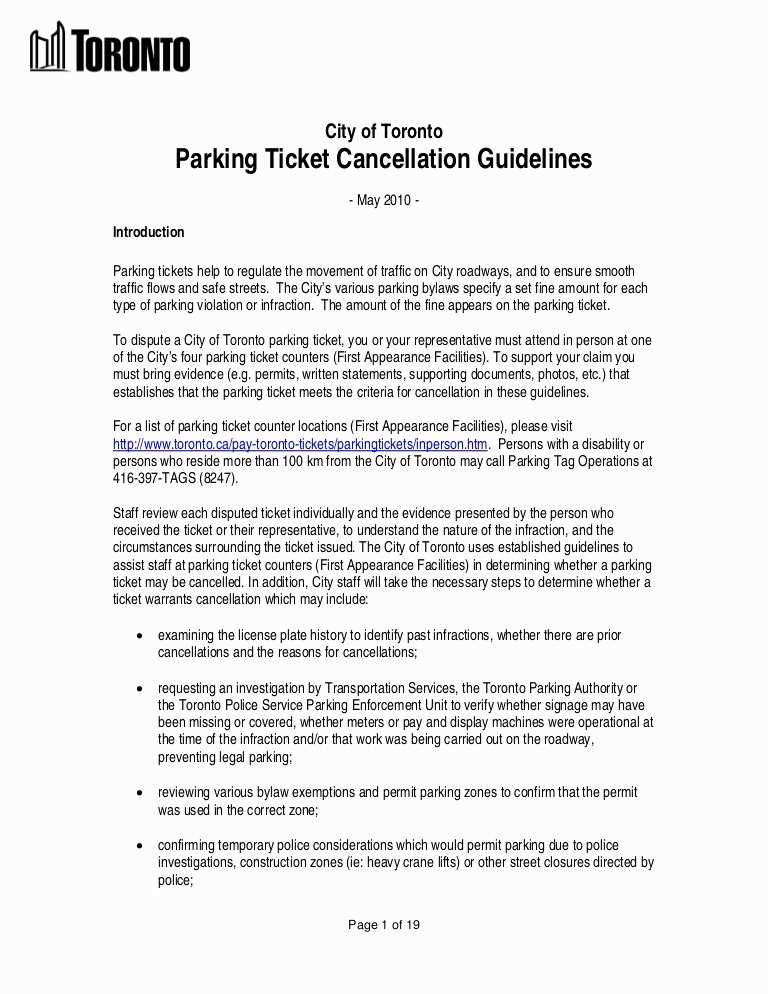Parking Ticket Appeal Letter Template for UK Drivers

Receiving a fine can be frustrating, especially when you believe it was issued unfairly. However, there are ways to contest the charge and potentially have it overturned. Understanding the process and knowing what information to include in your response can significantly improve your chances of success.
In this guide, we will cover the essential steps for disputing a fine in the UK, including how to structure your communication with the relevant authorities. Whether the violation was made in error or due to extenuating circumstances, having a clear and compelling case is key. By following the right procedure, you can take the necessary steps to have the decision reviewed.
Being informed about your rights and the rules surrounding fines is crucial. The following sections will outline everything you need to know about presenting your case effectively.
How to Write an Effective Appeal
When challenging a fine, it’s important to communicate clearly and professionally with the relevant authorities. A well-crafted response can make a significant difference in the outcome of your case. Ensuring your message is logical, concise, and backed by any necessary evidence will help strengthen your position.
Start by addressing the right department or official, using the correct details. Provide a brief but precise explanation of why you believe the charge was issued unfairly. Avoid unnecessary information, focusing on the key points that support your argument.
In addition, include any documentation that can substantiate your claims. This might include photographs, witness statements, or records that show the circumstances of the incident. Providing clear evidence to back up your statement can be crucial in persuading authorities to reconsider their decision.
Finally, remain polite and respectful throughout the process. A professional tone can help demonstrate your seriousness and willingness to resolve the situation amicably.
Key Elements of a Successful Letter

To effectively challenge a fine, your response must contain specific elements that clearly present your case. These components ensure that your communication is structured and provides the necessary details to support your argument. Including these key points will increase your chances of a favorable outcome.
First, make sure to provide all relevant information, such as your reference number, date, and location of the incident. This helps the recipient identify the exact case and understand the context quickly.
Be clear and concise in explaining why the charge was unfair or incorrect. Focus on the facts that support your claim and avoid irrelevant information. A direct approach is often more effective than lengthy justifications.
Additionally, it’s crucial to include any supporting evidence that strengthens your case, such as photographs, receipts, or official documents. This tangible proof can make a significant difference in convincing the authority to reconsider the fine.
Finally, maintain a respectful tone throughout your message. Even if you strongly disagree with the decision, politeness can help create a more positive impression and encourage a fair review of your request.
Common Reasons to Appeal a Fine
There are several reasons why an individual may wish to contest a charge. Understanding these common grounds can help determine whether there are valid reasons to challenge the fine. Here are some typical situations in which fines might be disputed.
| Reason | Description |
|---|---|
| Incorrect Details | The fine may have been issued with incorrect information such as wrong location, date, or vehicle details. |
| Unclear Signage | If signs or markings are unclear, difficult to read, or absent, it can be a valid reason to dispute the fine. |
| Medical Emergency | If the fine was issued during a genuine medical emergency or unavoidable situation, it can be a reasonable ground for contesting. |
| Payment Issues | Proof of payment or incorrect processing of payment can also be grounds for challenging the fine. |
| Exemption | In some cases, there may be an exemption that applies to your situation that wasn’t considered when issuing the charge. |
Understanding Parking Fine Exceptions
There are specific circumstances where a fine might not apply or where an individual may be exempt from paying. Knowing these exceptions can be crucial when deciding whether to challenge a charge. In some cases, even if a violation has occurred, there may be valid reasons that make the fine unenforceable or eligible for reduction.
For example, if an individual can prove that they were experiencing a medical emergency at the time of the incident, they may not be held liable for the penalty. Additionally, certain vehicles, such as those used by disabled individuals, may be exempt from fines in designated areas. Understanding these nuances can help in identifying whether a charge is justifiable or whether an exemption may apply.
Other exceptions include situations where the signage is not visible, clear, or properly maintained. In such cases, individuals may not have been aware of restrictions, which can provide a valid reason for contesting the charge.
Step-by-Step Guide for UK Drivers
When you decide to challenge a fine, following the correct procedure is essential to improving your chances of success. This step-by-step guide will help UK drivers navigate the process of contesting a charge, ensuring all necessary actions are taken in the right order.
First, carefully review the fine to ensure that all details, such as date, location, and your vehicle information, are correct. If any information is inaccurate, this could be a valid reason for disputing the charge.
Next, gather any evidence that supports your case. This might include photos, payment receipts, or other documents that demonstrate your position. The more evidence you can provide, the stronger your case will be.
Once you have all the required details and supporting materials, write a clear and concise response explaining why you believe the charge is unjust. Include your reference number, the facts of the case, and any evidence to back up your claim.
After submitting your request, keep track of any deadlines and ensure you follow up if needed. It’s also helpful to monitor the response and be prepared to escalate the matter if necessary.
Essential Tips for Crafting Your Letter

Writing an effective response is key to successfully challenging a fine. Your communication should be clear, focused, and well-structured to increase the chances of a favorable decision. Here are some important tips to keep in mind when crafting your message.
Be Clear and Concise
- Stay focused on the main points of your case.
- Avoid unnecessary details that may confuse or dilute your argument.
- Use straightforward language to make your message easy to understand.
Include Relevant Evidence
- Attach any documents or proof that support your claims, such as photos or receipts.
- Ensure all evidence is clear and directly related to the issue.
- Refer to the evidence within your written response to strengthen your position.
By following these tips and presenting a well-organized, factual message, you will be better equipped to handle the review process and potentially have the fine reduced or canceled.